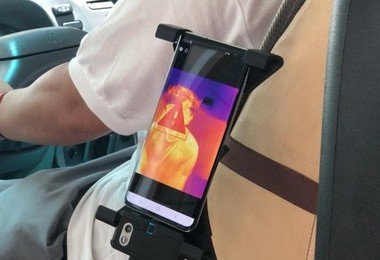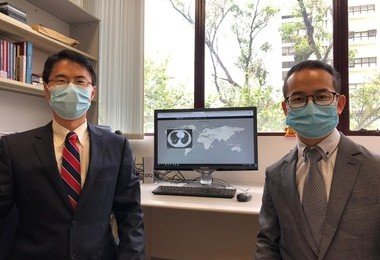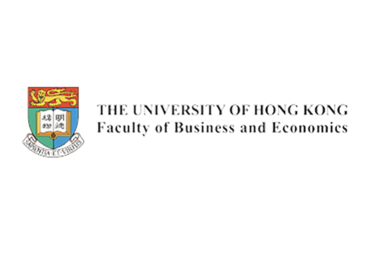KE Spotlight
Filter
-
Faculty Knowledge Exchange Awards 2020
The annual Faculty Knowledge Exchange (KE) Awards recognise each Faculty’s outstanding KE accomplishment that has made demonstrable economic, social or cultural impacts to benefit the community, business/industry, or partner organisations. Results of the 2020 Faculty KE Awards are now available.
Read More -

HKU Faculty of Dentistry provides dental service to non-ethnic Chinese
"Gateway to Dental Health" was launched by the HKU Faculty of Dentistry in 2017 and has been working hand in hand with NGOs to provide free dental outreach service to Non-Ethnic Chinese (NEC). The Project was initiated by Dr Prasanna Neelakantan, Clinical Assistant Professor in Endodontics of the Faculty, with the objective to improve oral health condition of local NEC. The project team engages the NEC community by providing dental services and oral health education and in 2018 and 2019, seven dental health fairs were organised. This year, despite the postponement of our outreach dental services due to the pandemic, the project team will continue to provide oral care support to the NEC community. Together with the India Association Hong Kong, Pakistan Association of Hong Kong and Health in Action, a webinar will be held to share oral health tips, information on dental services and to respond to self-care questions.
Read More -

HKU engineering team develops handy and low-cost thermography fever detection system for public transportations
A multidisciplinary group of researchers from the Departments of Mechanical Engineering and Computer Sciences led by Dr Fu Sau-chung, Research Assistant Professor of the HKU Department of Mechanical Engineering, has recently explored a low-cost thermography fever detection system which is portable and can be easily accessed and mastered by users. The thermal camera plugin in the current prototype is a commercial product which costs around HK$3,000 per set and this accounts for most of the hardware cost. As compared to other similar systems in the market, the total cost of the current prototype is far lower and the system is more handy. Multiple trials have been conducted at the HKU campus since early May. The research team hopes that this portable thermography fever detection system can be applied in public transportation, such as taxis, shuttle buses and minibuses commonly in the future.
Read More -

HKU Law promotes creative and ethical use of copyright works in education with short videos
Led by HKU Faculty of Law Associate Dean (Academic Affairs) and Associate Professor Ms Alice Lee, a series of short videos titled “Copyright Classroom”, supported by the HKU Knowledge Exchange Funding and HKU Teaching Development Grant, is produced to promote creative and ethical use of copyright works in education. Ms Lee hopes both the education sector and the general public will have a better understanding of copyright principles through the videos, be able to identify copyright exceptions in teaching and learning, and know where to look if relevant resources and materials are needed. She also thanks law alumnus Uncle Siu for being the voice over, other team members and partner secondary schools for their inputs. A total of nine videos, tailor-made for the tertiary, secondary and primary education sectors, are disseminated through “The Copyright Classroom – HKU” channel as well as Ms Lee’s education website.
Read More -

HKU statisticians develop online diagnostic system for screening COVID-19 with AI technologies based on chest CT dataset
A research team led by Professor Yin Guosheng, Head of Department of Statistics and Actuarial Science at HKU, and Dr Liu Bin, Assistant Professor of Centre of Statistical Research, School of Statistics, Southwestern University of Finance and Economics (currently Post-doctoral Fellow at HKU) has integrated radiography and computer vision to develop a digital online diagnostic system for COVID-19 based on chest CT scans. The diagnostic system can help to screen suspected cases of COVID-19 and evaluate the probability of one contracting the disease with 88% accuracy. The research team at HKU has designed a Lesion-Attention Deep Neural Network (LA-DNN) model based on the CT images. Leveraging on text reports from 760 research papers, the research team further analysed and pinpointed five different lesions in association with COVID-19 and identified each confirmed patient with at least one or more of the five lesions. These five lesions are the distinctive features that differentiate COVID-19 from general pneumonia or other lung diseases. Professor Yin and Dr Liu hope that medical staff can make use of the diagnostic system and share patients’ image data to initiate collaborative research and accommodate the urgent demands for COVID-19 testing.
Read More -

Tips on Sustainable Psychological Health
The recent events in Hong Kong have given rise to unprecedented challenges to general psychological wellbeing. Professor Tatia Lee, Head of HKU Department of Psychology, and her clinical psychology and educational psychology colleagues, have prepared five short videos, each of which contains useful insight and tips for protecting and promoting psychological wellbeing. A special topic will be presented each week starting from May 29, 2020.
Read More -

HKU-led study accurately tracks COVID-19 spread with big data
An international research team led by HKU developed a new method to accurately track the spread of COVID-19 using population flow data, and establishing a new risk assessment model to identify high-risk locales of COVID-19 at an early stage, which serves as a valuable toolkit to public health experts and policy makers in implementing infectious disease control during new outbreaks. Dr Jayson Jia, Associate Professor of Marketing at the Faculty of Business and Economics of HKU and lead author of the study, and his team used nation-wide data provided by a major national carrier in China to track population movement out of Wuhan between January 1 and 24, 2020, a period covering the annual Chunyun mass migration before the Chinese Lunar New Year to a lockdown of the city to contain the virus. The movement of over 11 million people travelling through Wuhan to 296 prefectures in 31 provinces and regions in China were tracked. Combining the population flow data with the number and location of COVID-19 confirmed cases up to February 19, 2020 in China, Dr Jia’s team showed that the relative quantity of human movement from the disease epicentre, in this case, Wuhan, directly predicted the relative frequency and geographic distribution of the number of COVID-19 cases across China. The researchers found that their model can explain 96% of the distribution and intensity of the spread of COVID-19 across China statistically which helps to identify high risk area.
Read More

